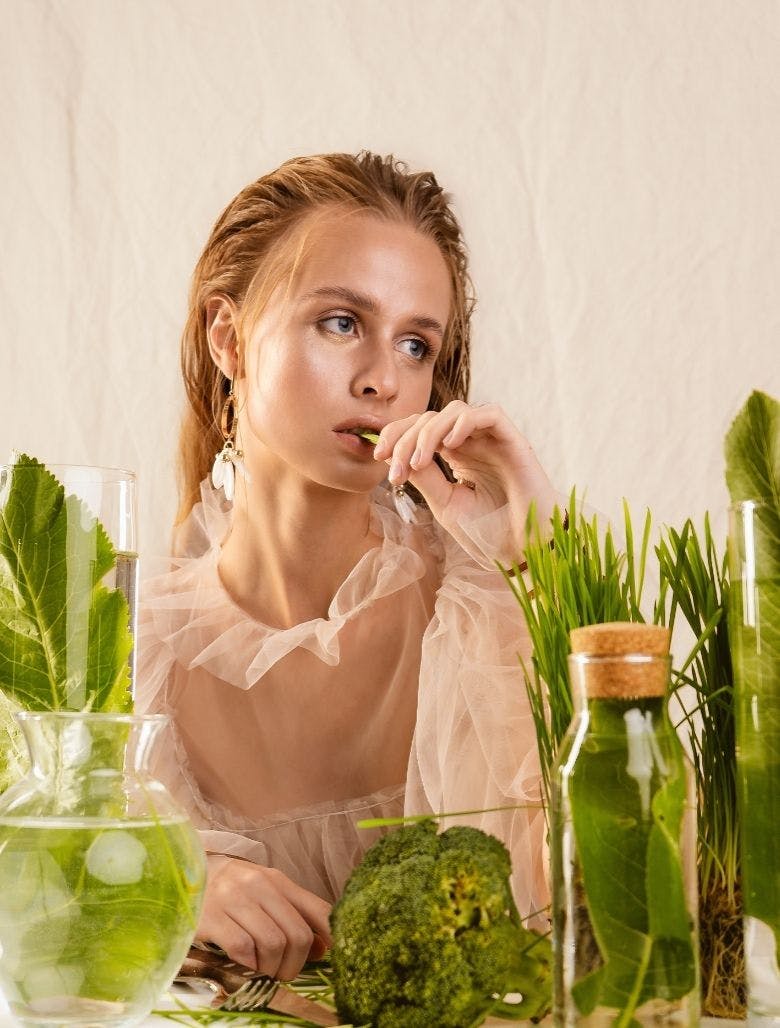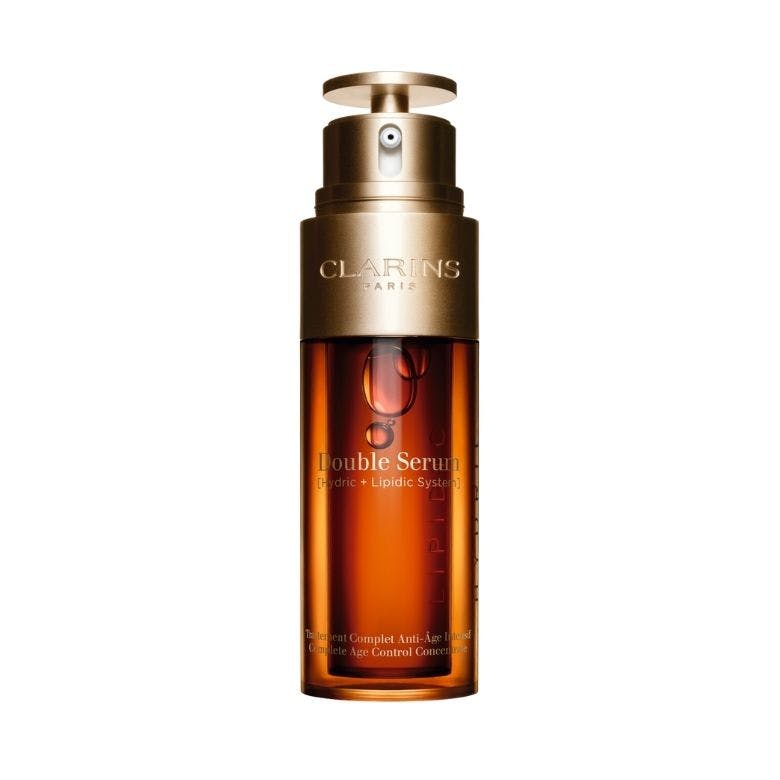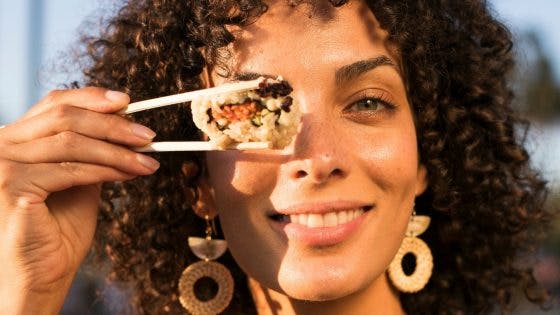Adopt A Holistic Approach If You Want Healthier Skin In 2022
7 minutes read
Here’s what experts want you to know: having healthy skin from the inside out is not as straightforward as having a spotless skincare regimen. Our skin has nutritional and emotional needs that topical creams and serums cannot address.
“Achieving healthy, glowy, lit-from-within skin requires a holistic skincare approach. Ditching one or two food groups is often not enough. But, nourishing your body with the nutrients it needs and freeing your mind from stress is.” holistic nutritionist Maria Marlowe tells Beauty Daily.
We spoke to global experts on proven ways to nourish the skin from the inside. From the importance of a healthy gut and the impact of nutrition on the skin to managing stress levels, read how to get that covetable glow we all so covet all year round.
Science-backed, doctor-approved ways to get better skin from within

Change your diet
“There isn’t a one size fits all approach to diet for people with certain skin conditions. However, there are triggers to watch out for or foods to avoid that could be making things worse,” Ro Huntriss, London-based consultant dietitian and nutritionist, explains.
If you want to banish acne:
A clinical study has found consuming food high in glycemic index contributes to longer acne duration, whereas a low glycemic index diet reduces acne risk.
The NHS lists high GI foods, including sugar and sugary food, sugary soft drinks, white bread and white rice. Low or medium GI food includes some fruit and vegetables, pulses and wholegrain foods, such as porridge oats.
Marlowe advises, “The first step is to add in more of this nutrient-dense food to ensure you’re providing your body with the vitamins and minerals it needs for clear and healthy skin. Secondly, remove any food that may be contributing to breakouts, such as refined and processed foods, vegetable oils, and any foods you have a sensitivity to.”
Huntriss adds that food high in fat, sugar and dairy can increase sebum production in people with oily skin.
“Reducing intake of food items with added sugar and swapping refined carbohydrates for wholegrain versions can limit the severity of acne symptoms. Similarly, in some people, milk may worsen the number and severity of acne lesions.”
If you want to get a golden glow:
A study published by the American Journal of Public Health found that people who eat more fruit and vegetables have a healthy glow. It is all down to carotenoids, the orangey-red pigments found in fruits and vegetables.
If you are suffering eczema:
“People with eczema should consider stocking up on foods with anti-inflammatory properties such as sources of omega-3 fatty acids (salmon, mackerel, sardines). Along with fruits and vegetables, whole grains and healthy fats such as extra virgin olive oil and avocados as these are proven to help reduce eczema symptoms,” Huntriss says.
Emerging evidence also suggests that food containing the flavonoid quercetin can help soothe inflammation that leads to eczema. This is found in apples, citrus fruits, grapes, broccoli and onions.
If you want to prevent skin ageing:
The British Dietetic Association (BDA) says the most effective way to prevent or work against skin ageing is by eating a balanced nutritional diet. So if you don’t want fine lines and wrinkles, rethink and redo your diet.
If you want to reduce rosacea flare-ups:
If you are suffering from rosacea, Huntriss says, “It’s best to avoid alcohol, spicy foods, hot drinks, cinnamaldehyde-containing foods such as tomatoes, citrus fruits, chocolate, and histamine-rich foods such as aged cheese, wine and processed meats as these can be common triggers.”
She also advises identifying any trigger food that may contribute to flare-ups. “Keep a food diary and a record of any meals that trigger and eliminate them from your diet accordingly. I recommend doing this under the guidance of a healthcare professional to avoid any nutritional deficiencies.”
The good news is healthy eating habits also lead to better mood, more energy, and fewer digestive issues. Look at making the changes as a form of self-care and investment in your health, not as a restriction.
Check your gut health
More and more studies are linking good skin to a healthy gut when it comes to skin health. For example, recent research has shown that rosacea, acne vulgaris, cystic acne, psoriasis, and eczema begin in our gut.
“100 trillion microorganisms are living in our gut and on our skin: they are our gut and skin microbiome. Our gut microbiome communicates with our skin microbiome via the gut-skin axis. When the gut microbiome is altered, it negatively affects our skin microbiome which causes inflamed skin, breakouts and also triggers and exacerbates many skin conditions,” Federica Pavesi, Co-founder and scientific director at Fermento Probiotics explains.
The main causes of a disrupted gut microbiome are poor nutrition, stress or the use of antibiotics. Pavesi adds, “Having a balanced diet and healthy lifestyle is the first thing to do to keep our gut healthy when this is not possible or for instance when we take drugs like antibiotics, it is always recommended to supplement our diet with probiotics, to restore our gut microbiome and keep us healthy.”
Scientists discovered that these issues could be solved with probiotics – which are live microorganisms with beneficial effects on our health.
Pavesi says, “Probiotics are good bacteria that rebalance our microbiome, fighting bad bacterias (pathogens), preventing and reducing skin conditions effectively and safely. But not all probiotics are the same, thousands of different probiotic strains exist and we need to take the right one for targeting specific health benefits.
We study the different mechanisms of action of all the probiotic strains and we develop precision probiotics targeted for different conditions. The Skin Calm probiotic has four different strains of probiotics that have been demonstrated in double-blinded clinical trials for eczema, rosacea, acne and psoriasis.”
Don’t let stress dim your glow
“Whether it’s the daily stresses of too many emails or being bothered by what you see on Instagram to Covid-related stresses, our bodies produce stress hormones such as cortisol as a result, and these hormones show up in our skin. Often, this can materialise in aggravating acne, psoriasis and dermatitis, while for others this can look like an oilier complexion or more irritation,” says Giselle La Pompe-Moore, Trauma-sensitive meditation teacher and author of Take It In: Do The Inner Work.
The NHS says paying more attention to the present moment – to your thoughts, feelings and around you can improve your mental wellbeing, therefore, lowering your stress levels. Apart from mindfulness meditation, deep breathing can also help lessen stress, panic and anxiety.
La Pompe-Moore instructs, “Simply breathe in and feel your stomach rise and expand as you repeat the word ‘in’ to yourself. Then breathe out, feeling your stomach fall as you repeat the word “out” to yourself.
You can keep doing this for a few moments, and it’s completely normal if you get distracted or lose focus; just notice any thoughts coming in and shift your attention back to your breath and repeat ‘in’ and ‘out’ over in your mind.”
Read next: Expert-Backed Ways On How To Relax Your Mind
Superfood skincare ingredients to look for to get the glow
There’s a growing trend of superfood skincare. To put this into practice, both in our diet and on our faces, we listed what superfoods to look for in skincare products.
Turmeric:
As an antioxidant, turmeric is known for its exceptional anti-ageing properties and helps fight significant signs of skin ageing. In addition, other studies have shown that curcumin, a chemical compound found in turmeric, can decrease UV damage.
Superfood turmeric is rich in vitamin C and is the hero ingredient in Double Serum.

Moringa:
Moringa extract is used in cosmetics for its capacity to encourage the elimination of pollution particles. It can minimise breakouts, fine lines and also has hydrating and detoxifying elements. Moringa also has a high level of antioxidants—including vitamin C, A, and B—perfect for achieving a youthful glow. It is found in several Clarins skincare products such as the Velvet Cleansing Milk.
Vitamin A:
Vitamin A helps promote collagen synthesis for firmer skin, restore skin density and promote an even-looking, radiant complexion. An active ingredient, similar to retinol, is found in the Super Restorative Range. Organic harungana extract, sourced from Madagascar, is as potent as retinol but a more natural, gentler alternative.
Lifestyle tweaks for lit-from-within skin
Dietician Huntriss recommends five simple lifestyle tweaks:
- Staying hydrated is important for the elasticity of the skin- aim for at least two litres of water per day.
- Wear SPF every day (even in the winter) to reduce the damaging effects of UV rays.
- Get lots of sleep – aim for 7-9 hours per night. Sleep is when our body rejuvenates and produces more collagen.
- Stop smoking or avoid being around people when they are smoking.
- Exercising regularly can prevent and reverse signs of skin ageing.
Different factors can contribute to skin issues and conditions: poor nutrition and stress to genetics and hormonal imbalances. There is no one-size-fits-all approach when it comes to skin health. Consider speaking to your dietician or dermatologist for a further professional skincare approach.
Take our online quiz for tailored product recommendations for your skin type.
Sign up for our newsletter
We will keep you in the loop for special offers, exclusive gifts and product news.

